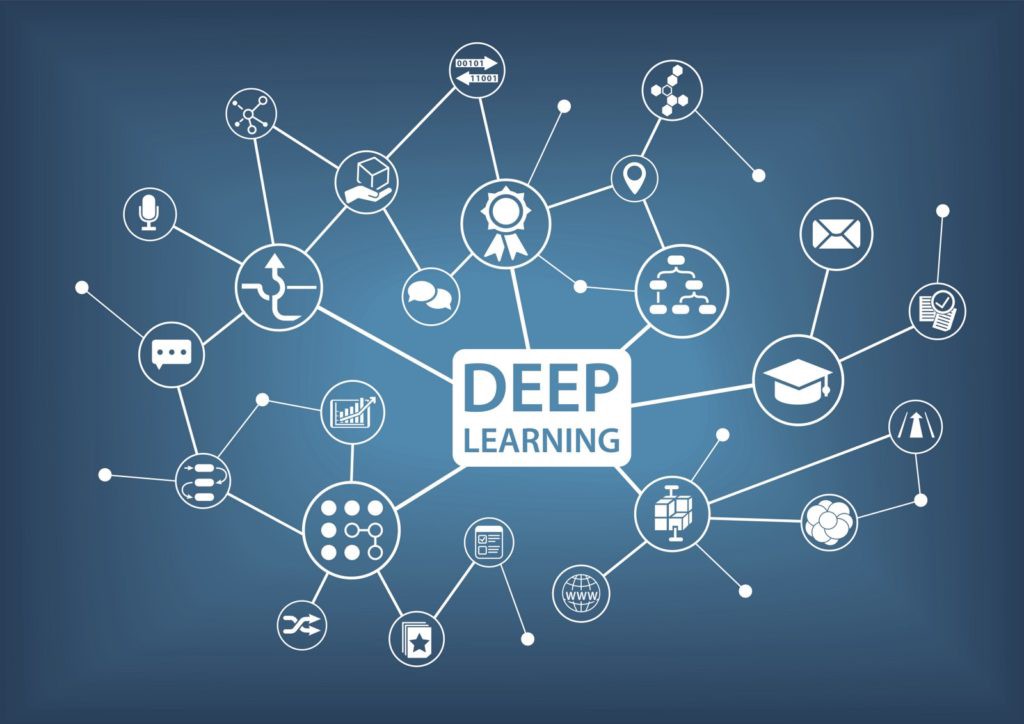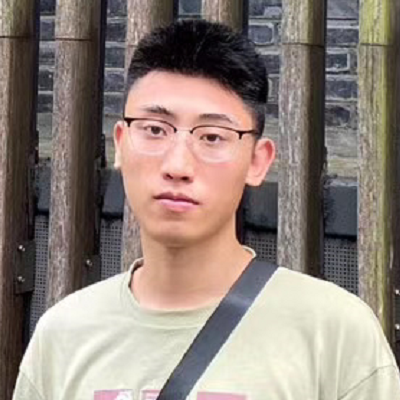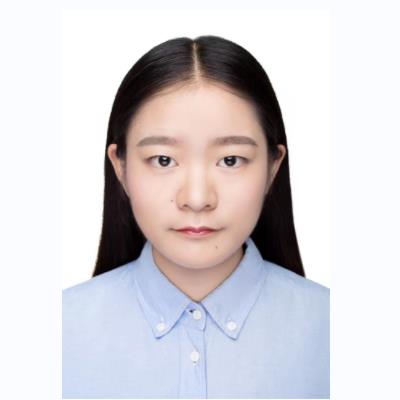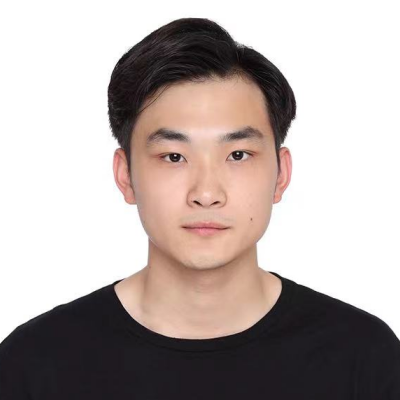
DDA4220 Deep Learning and Applications
MDS6224 Deep Learning and Their Applications
MBI6011 Deep Learning
Spring 2023
Introduction
Deep Learning and Application is the course designed to learn some basic components of modern deep neural networks, as well as the relevant applications from a practical perspective. The course covers topics including convolution neural network, recurrent neural network, graph neural network, neural radiance fields, attention mechanism, and Transformer. Besides, some carefully selected computer vision and NLP applications are also introduced in this course. Some projects are arranged to practice the concepts learned during the course. By taking this course, students can master the use of python libraries to build deep neural networks and address some basic artificial intelligence tasks.
Teaching Team

Ruimao Zhang
Instructor
zhangruimao@cuhk.edu.cn

Jie Yang
Ph.D., since 2021, TA
jieyang5@link.cuhk.edu.cn

Ruiying Liu
Ph.D., since 2022, TA
222043005@link.cuhk.edu.cn

Shunlin Lu
Ph.D., since 2023, TA
lushunlin@cuhk.edu.cn
Logistics
Note: lectures will be remote for the first two weeks, and hybrid afterwards. The Zoom link is posted on BB.
Ruimao Zhang: Tuesday 3:00--4:00 PM. Room 519, Daoyuan Building
Jie Yang: Tuesday 10:00-11:00 AM. Tencent meeting link: https://meeting.tencent.com/dm/1pvUtzh7amoz (No. 963-5662-5312)
Ruiying Liu: Monday 10:00-11:00 AM. The bigger room of SDS Research Lab (4th Floor, Zhi Xin Building) Seat No. 88.
Shunlin Lu: Friday 20:00-21:00 PM. Tencent meeting link: https://meeting.tencent.com/dm/Nt429IFgBhnU (No. 304-4741-4210)
Course Information
This course is designed as the first course for students who are interested in deep learning technology. It mainly focus on some basic components of modern deep neural networks, as well as the relevant applications from a practical perspective. While the advanced topics cover the cutting-edge technology in recent years, giving students the opportunity to know the trend of technology development. In particular, the topics include:
Prerequisites
Textbooks
Recommended Books
Grading Policy
Assignments (30%)
Midterm Exam (25%)
We will have 20~30 questions about the basic concept. The scope of the mid-term exam is from lecture 1 to lecture 9 (including Transformer).
Final Project (40%)
The final project is teamwork with no more than 3 teammates. You need to write a project report (max 5 pages not including references) for the final project. Here is the report template.
You also need to prepare a “10 minutes” code explanation (using the Zoom) to explain the core content of your code, its reasonableness, and the steps to run it, which is highly relevant to the quality and readability of your code.
After the final project deadline, feel free to make your project open source.
【Note】If your team submits a project report after the submission deadline, the maximum project credit for all team members is 50%.
(1) Reference to prior work (3%): Cite existing related work and describe the lineage of technology development, as well as their relations to your algorithms.
(2) Technical correctness (4%): Present your algorithms or systems for your project. Provide key information for judging whether it is technically correct.
(3) Experimental validation (5%): Present your experimental setups, and experiments conducted. Discuss the motivation of the designed experimental setups and the corresponding evaluation metrics.
(4) Findings and Analysis (8%): Report the final results of your algorithms (performances and visualization results). Analyze and understand your system by inspecting key outputs and intermediate results (ablation study). Discuss how it works, when it succeeds and when it fails, and try to interpret why it works and why not.
(5) Clear in writing (2%): The report is written in a precise and concise manner so the report can be easily understood.
(6) Overall quality of report (3%): An overall evaluation of the final project report, including but not limited in writing, creativity, convincing experiments and analysis.
Participation (5%)
Here are some ways to earn the participation credit. Note that the relevant scores are used to make up for grades.
Schedule
| Date | Lecture Description | Reading Material | Lecture Note | Events/Deadlines |
|---|---|---|---|---|
| Jan. 4 & Jan. 9 | Lecture 1: Introduction | Textbook: Deep Learning Textbook: Dive into Deep Learning |
[ Slides] [ Video-1] [ Video-2] |
|
| Jan. 11 & Jan. 16 & Feb. 8 | Lecture 2: Convolution Neural Network 1 | Learn LaTeX in 30 minutes Official tutorials of GitHub |
[ Slides] [ Video-1] [ Video-2] [ Video-3] |
|
| Jan. 11 | Tutorial 1: Introduction to Pytorch | Colab official tutorial Pytorch Quickstarts PyTorch Installation |
[ Material] [ Video] |
|
| Feb. 13 & Feb. 15 & Feb. 20 & Feb. 22 | Lecture 3: Convolution Neural Network 2 | Article Management Tool Recommended papers: GoogleNet, ResNet |
[ Slides] [ Video-1] [ Video-2] [ Video-3] [ Video-4] |
Assignment 1 out [ PDF] [ Template] [ Data] |
Feb. 15 | Tutorial 2: Network Training Pipeline | Homepage of OpenMMlab | [ Material] [ Video] |
| Feb. 22 & Feb. 27 | Lecture 4: Computer Vision Basic 1 | Recommended papers: Training Tricks, Adagrad, Adam |
[ Slides] [ Video-1] [ Video-2] |
|
| Mar. 1 & Mar. 6 & Mar. 8 | Lecture 5: Computer Vision Basic 2 | [ Slides-1] [ Slides-2] [ Video-1] [ Video-2] [ Video-3] |
Topics of the final project out | Mar. 1 | Tutorial 3: Deep Learning Applications I | [ Material] [ Video] |
| Mar. 13 & Mar. 15 & Mar. 20 | Lecture 6: Recurrent Neural Network | Recommended papers: LSTM, GRU, Sequence-to-sequence Modeling |
[ Slides] [ Video-1] [ Video-2] [ Video-3] |
Assignment 1 due Mar. 19, 11:59 PM. |
Mar. 15 | Tutorial 4: Deep Learning Applications II | [ Video] |
| Mar. 22 & Mar. 27 | Lecture 7: Natural Language Processing Basic | Recommended papers: Wrod2vec, Glove, |
[ Slides] [ Video-1] [ Video-2] |
Assignment 2 out [ PDF] [ Template] |
Mar. 27 | Tutorial 5: Introduction to NLP framework | [ Material] [ Video] |
| Mar. 29 & Apr. 3 | Lecture 8: Attention and Transformer | Recommended papers: non-local, Transformer, ViT |
[ Slides] [ Video] |
Apr. 4 | Tutorial 6: Deep Learning Applications III | [ Video] |
| Apr. 10 | Midterm Exam | |||
| Apr. 12 & Apr. 17 | Lecture 9: Pretrained Language Models | Recommended papers: BERT, GTP-1, GTP-2, GTP-3, InstructGPT |
[ Slides] [ Video-1] [ Video-2] |
Assignment 2 due |
| Apr. 23 & Apr. 24 | Lecture 10: Self-supervised Learning in Vision | [ Slides] [ Video-1] [ Video-2] |
||
| Apr. 26 & May 6 | Lecture 11: Unified Language and Vision Models | [ Slides] [ Video-1] [ Video-2] |
||
| Final Project Submission | Final Project Report due (11:59 PM.) |